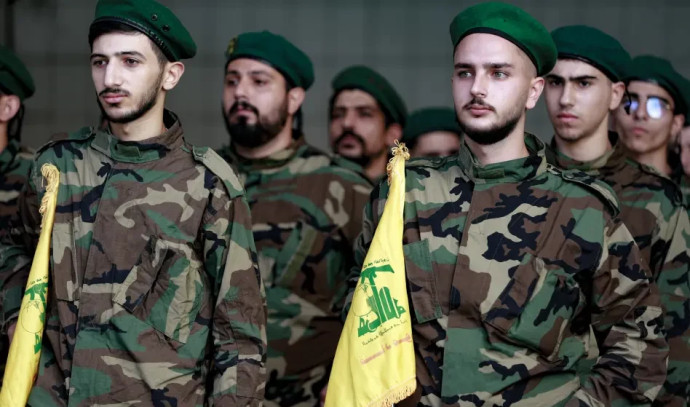A report in Al-Ain media in the UAE claimed to reveal an interesting development in Yemen. The report claims that Hezbollah has “confiscated” funds in Yemen from the Houthis and that Hezbollah is playing a role in Yemen. The report leaves many questions that are impossible to confirm, but it likely reveals some details that are worth analyzing. First of all, it reflects a concern in the UAE and the Gulf about the increased ties of the Houthis to Iran and other Iranian proxies. It reflects concern that the Houthis are being operationalized to do proxy work for Iran.
Iran has been active in backing the Houthis in their war on Saudi Arabia since 2015 when Saudi Arabia and other countries intervened in Yemen to prevent the Houthis from taking Aden. There was a ceasefire in Yemen in 2022, and Saudi Arabia and the Houthis appeared to be on a track toward peace because Riyadh and Tehran were patching things up with China’s backing. Now, the Houthis have directed resources to join Hamas in the war against Israel. The Houthis are playing their role by attacking ships. This raises concerns about how Iran may use the Houthis in the future.
Behind ‘Abu Radwan’
The report at Al-Ain says that the news organization learned that the Houthi militias received “directives from Hezbollah to allocate the largest portion of the financial revenues it earns from the Yemeni governorates in the north to military operations and military industrialization.” Hezbollah in Lebanon apparently now supervises some of what the Houthis are doing and works as a “mastermind” behind operations. “The sources revealed that Hezbollah addressed the militia leader, Abdul-Malik al-Houthi, by transferring the process of managing the financial resources that the Houthi militias earn from revenues, royalties, and taxes from areas under their control to a special committee headed by one of Hezbollah’s experts present in Sanaa, whose nickname is ‘Abu Radwan.’”
The name Abu Radwan, if it’s real and not just a made-up name, is possibly linked to the Hezbollah Radwan forces, who are portrayed as the elite force of Hezbollah. The Radwan force takes its name from the late Hezbollah commander Imad Mughniyeh who was known as al-Hajj Radwan. This was his “war name” or nom de guerre. The fact that a mysterious man in Yemen who is linked to Hezbollah has taken on the name Abu Radwan is entirely plausible, but it’s only plausible in the context of knowing who the original Hajj Radwan was and what is meant by Radwan in the Hezbollah lingo.
The article claims that Abu Radwan in Yemen is now “supervising the revenues of the communications and Internet sector under the control of the Houthis.” But not only that, he has done this for years and was linked to Hezbollah for years. He is “directly linked to the leadership of Hezbollah and experts from the Iranian Revolutionary Guards to finance military activities and arming the militias.”
Hezbollah now plays a greater role in deciding where the Houthis allocate funds. A committee now exists that received input from Hezbollah about where to target financial resources and “how the process of military spending and armament will be carried out.” There is some kind of cheeky irony in this story because the article claims the source said that the goal of Hezbollah in Sinai is to kind of put the Houthi leadership on a diet of finances, “ending the extensive financial privileges enjoyed by the Houthi leadership, including military and security, drying up corruption, transferring funds for the benefit of military operations, and preparing for any future developments.”
In essence, Hezbollah has been brought in to bring some austerity here and clean up the Houthi books. The Houthis are like one of those large corporations like Office Space, and someone has to come in as efficiency experts and ask the Houthis, “What exactly do you do here”? At the same time, it seems Hezbollah has sought to squeeze the populace by sending taskmasters to go out and farm more money for the bosses in Sanaa. “The sources confirmed that Hezbollah asked the Houthi militias to intensify the financial collection process and raise the rates of customs, taxes, port fees, and communications costs by no less than 40% during the coming months until the end of the current year.”
And it gets worse if you’re a Yemeni who thought peace might bring a peace dividend. It turns out Hezbollah wants a 70/30 split in terms of where the money goes. Seventy percent for guns and only thirty percent for food. This “guns or butter” equation is not in favor of what is good for Yemen. However, the article reveals the reason for this squeeze. It turns out that the Houthis are not getting as much money from Iraq or Iran, or perhaps Hezbollah is not getting as much from Iraq and Iraq. A new “council of experts” has been formed in Sana’a, and it has been “granted absolute powers for military and security decisions, controlling even the civilian sector, carrying out bombing or targeting operations inside and outside Yemen’s borders, and even naval attacks against cargo ships.”
According to the report, this council is now in charge of military operations, and the Houthi’s own ministry of defense has been sidelined. If this is true, it points to Iran’s IRGC outsourcing some operations in Yemen to Hezbollah. It’s not the first that has been heard of Iran’s IRGC playing a role in overseeing Houthi actions, but it is the first time Hezbollah’s role has appeared so prominent. It is also known that in early October, after the Hamas attack, the Houthis created a “joint operations room” to coordinate with the rest of the Iranian axis to threaten Israel. Now, it seems this has grown into this “council” and taxation committee. If the report is accurate, then it spells more troubles in the region as Hezbollah grows in its role within the Iranian hierarchy.







